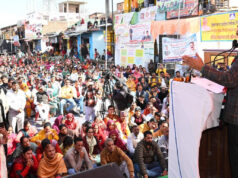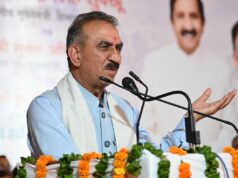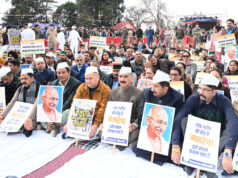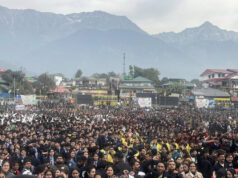CM Sukhu Increases Close Confidant’s Salary from ₹30,000 to ₹1,30,000, BJP Levels Serious Allegations
Shimla: In an unfolding drama that underscores the financial mismanagement plaguing Himachal Pradesh, the state government, under Chief Minister Sukhvinder Singh Sukhu, is reportedly preparing to delay the disbursement of employee salaries and pensions. The plan—paying salaries on the 5th and pensions on the 10th of each month—has raised serious concerns among employees and pensioners who rely on timely payments for their financial obligations.
While the state government contemplates these delays, which could significantly disrupt employees’ financial planning, rumours have surfaced about some eyebrow-raising financial manoeuvres. Allegedly, CM Sukhu has overseen a series of high-profile appointments, including over 100 close confidants assigned as Chairmen, Vice-Chairmen, OSDs (Officers on Special Duty), Media Coordinators, and members of the Social Media team. These positions are reportedly drawing significant salaries from the state exchequer, fueling accusations of favouritism and mismanagement.
The BJP has seized on these reports, levelling serious allegations against the Sukhu administration. The opposition party has accused the government of prioritizing political patronage over the welfare of its employees and the state’s financial health. According to BJP spokespersons, this alleged appointment spree and salary hike for CM Sukhu’s confidants is a glaring example of the administration’s disregard for fiscal responsibility.
Jairam Thakur, the Leader of the Opposition, criticized the government’s financial policies, claiming that while employees face delays in their pay, those within the inner circle benefit from inflated salaries and prestigious appointments. “It seems the only thing that’s moving swiftly is the increase in salaries for those close to the government,” Thakur remarked. “Meanwhile, the hardworking employees who keep the state running are left to navigate financial uncertainty.”
The state’s financial situation is indeed dire, with reported debt levels crossing ₹20,000 crore within just 18 months under Sukhu’s administration. By the end of the year, this figure is expected to approach ₹1 lakh crore. Critics argue that this massive debt burden is compounded by questionable financial decisions, such as the alleged mortgaging of the Employees’ Provident Fund (GPF) to secure loans.
Additionally, the government’s expenditure on legal battles, including a reported Rs 6 crore spent on Delhi lawyers to defend “unconstitutional appointments,” has further fueled criticism. Opponents argue that these expenditures are indicative of a government more concerned with protecting its own interests than with addressing the state’s economic challenges.
In a scathing critique, Thakur accused the Sukhu government of deliberately delaying salaries as a smokescreen for its financial mismanagement. “This delay will create serious problems for employees who have to meet their financial commitments on time,” Thakur warned. “It’s a classic case of those in power making decisions that only add to the burdens of ordinary people.”
As the Sukhu government navigates these controversies, the irony remains palpable: while state employees face financial strain, those in the upper echelons of power seem insulated from the economic woes afflicting the rest of the state. As the situation unfolds, the central question remains: Is this really about financial prudence, or is it a convenient cover for deeper issues within the state’s administration?














